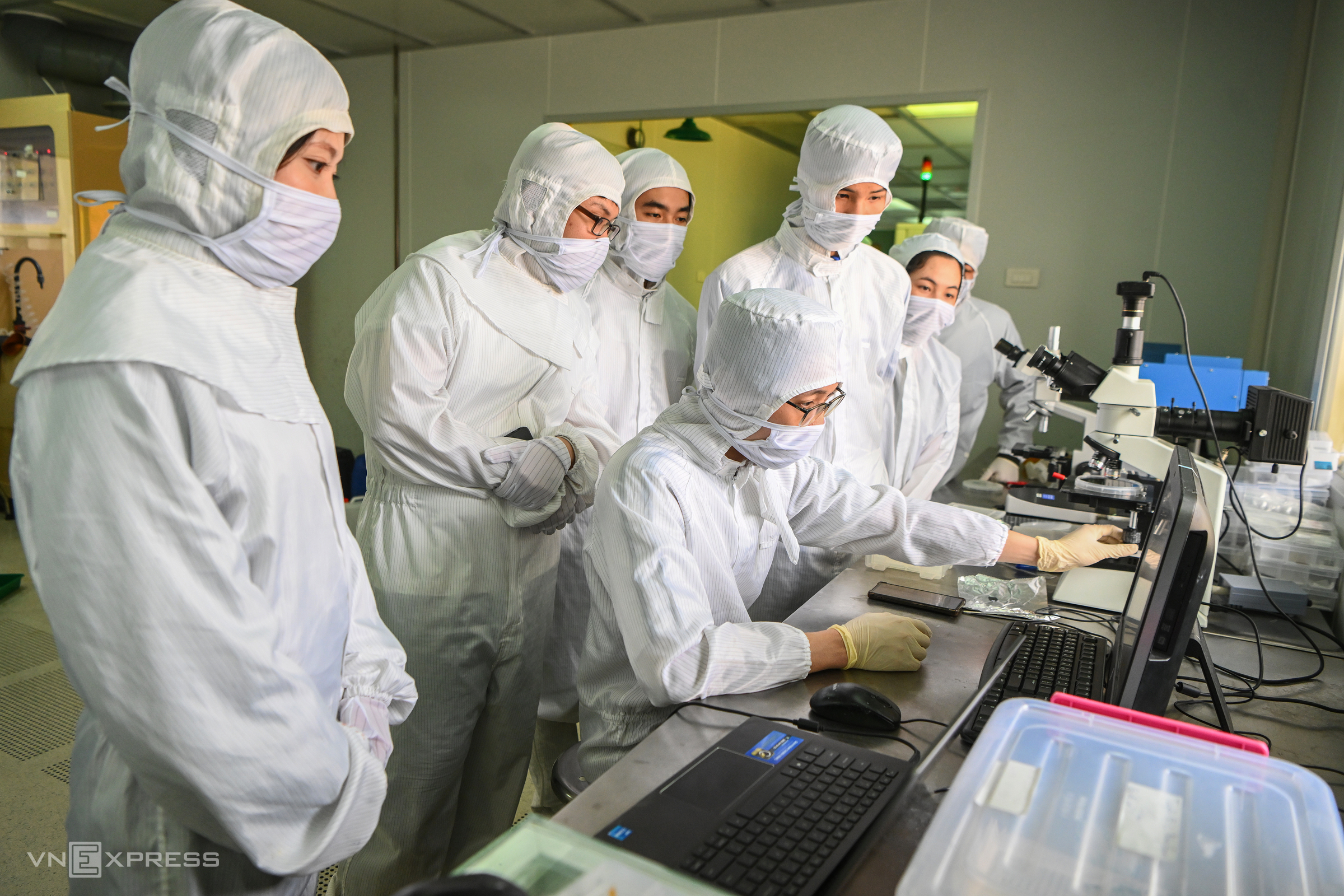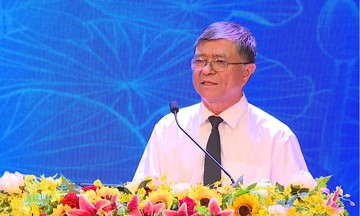Around 25 universities in Vietnam offer direct training in semiconductor specializations such as semiconductor microchip technology, microchip design, microelectronics engineering, nanotechnology, semiconductor chips, and packaging technology. 17 of these universities have announced their tuition fees for the 2025-2026 academic year.
The common tuition fee range is 23-41 million VND annually, typically divided into two semesters. The civilian program at the Military Technical Academy has the lowest tuition at 18.5 million VND. This marks the program's return after a 6-year hiatus.
FPT University has the highest average annual tuition, but their academic year consists of three semesters. Students in the semiconductor microchip design program at the Hanoi and Ho Chi Minh City campuses pay 94.8 million VND. Tuition at the Da Nang and Can Tho campuses is 66.36 million VND, while the Quy Nhon (Gia Lai) campus charges 47.4 million VND.
Following FPT University are Vietnam Japan University, Vietnam National University, Hanoi, and Hanoi University of Science and Technology, with annual tuition fees of 58 and 56 million VND, respectively.
Projected tuition fees for semiconductor programs at 17 universities for the 2025-2026 academic year are as follows:
| No. | University | Program/Major | Average Tuition 2025-2026 (million VND) |
| 1 | Hanoi University of Science and Technology | Microelectronics Engineering and Nanotechnology | 28-35 |
| 2 | Hanoi National University of Education, Vietnam National University, Hanoi | Semiconductor Technology Program (Materials Science Major) | 38 |
| 3 | University of Engineering and Technology, Vietnam National University, Hanoi | Microchip Design Specialization (Electronics and Telecommunications Engineering Technology Major) | 40 |
| 4 | Vietnam Japan University, Vietnam National University, Hanoi | Semiconductor Chip Engineering Technology | 58 |
| 5 | Military Technical Academy | - Microchip Design and Embedded Systems - Semiconductor and Nano Technology | 18.5 |
| 6 | Posts and Telecommunications Institute of Technology | Semiconductor Microchip Technology (Electrical and Electronic Engineering Technology Major) | 29.6-37.6 |
| 7 | Hanoi University of Science and Technology (USTH) | Semiconductor Microchip Technology | 56 |
| 8 | Academy of Cryptography Techniques | Electronics and Telecommunications Engineering (Embedded Systems and Microchip Design Specialization) | 39.2 (average per credit for the entire course) |
| 9 | Ho Chi Minh City University of Natural Sciences, Vietnam National University, Ho Chi Minh City | Semiconductor Technology | 34.2 |
| Microchip Design | 35.5 | ||
| 10 | University of Information Technology, Vietnam National University, Ho Chi Minh City | Microchip Design | 37 |
| 11 | Ho Chi Minh City University of Technology, Vietnam National University, Ho Chi Minh City | - Computer Engineering (Digital Microchip Design Specialization) - Microchip Design | 30 |
| 12 | Ton Duc Thang University | Electronics and Telecommunications Engineering (Semiconductor Microchip Design Engineering Specialization) | 34.85 |
| 13 | Da Nang University of Technology | Electronics and Telecommunications Engineering (Microelectronics - Microchip Design Specialization) | 30.9 |
| 14 | FPT University | Semiconductor Microchip Design | 94.8 (3 semesters in Hanoi and Ho Chi Minh City) 66.36 (in Da Nang and Can Tho) 47.4 (in Quy Nhon) |
| 15 | Phenikaa University (Hanoi) | Electronics and Telecommunications Engineering (Semiconductor Microchip Design) | 46.2 |
| Semiconductor Chips and Packaging Technology | 37 | ||
| 16 | East Asia University of Technology (Hanoi, Bac Ninh) | Semiconductor Technology | 23-29 (based on two semesters per year) |
| 17 | CMC University | Electronic and Telecommunications Engineering Technology (Semiconductor Microchip Design) | 40.95 (3 semesters) |
Eight universities, including Hanoi University of Science and Technology and those under Vietnam National University, Hanoi and Ho Chi Minh City, have set minimum entry requirements for semiconductor programs.
Applicants seeking admission to bachelor's and engineering programs in these fields through the national high school graduation exam must have taken math and at least one natural science subject. The total score for the three-subject combination must be 24/30, with a minimum math score of 8/10.
 |
Students studying in a clean room at Hanoi National University of Education, a center for semiconductor training and research. Photo: Giang Huy |
Students studying in a clean room at Hanoi National University of Education, a center for semiconductor training and research. Photo: Giang Huy
In 9/2024, the government approved a program to develop human resources for the semiconductor industry through 2030, with a vision to 2050. The goal is to train 50,000 professionals with bachelor's degrees or higher in this field by 2030.
To meet this substantial demand, the Ministry of Education and Training plans to incorporate semiconductor training into 75 existing programs, primarily in technology, engineering, and electronics fields such as physics, mechanics, computer science, computer networks, and data communication, in addition to the specialized semiconductor programs.
Duong Tam












